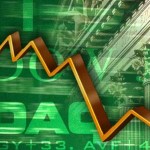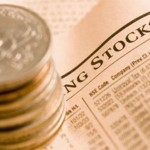Where investors are looking for opportunities right now?

Stock market investors have plenty to cheer about, with the Trump rally adding to the big gains of the Obama years, but it’s also natural to worry that U.S. stocks have more room to go down than up. So what’s the alternative?
It’s clear from recent data that more investors right now are seeking stock opportunities in the rest of the world. And there is a good reason for the international market’s focus from investors: Developed-market stocks beyond the United States are keeping pace this year with the S&P 500.
So far this year, international stocks are even a little ahead. Many investors may not be paying attention, because it’s coming after a long losing streak and as big-name investors like Berkshire Hathaway chairman and CEO Warren Buffett continue to say most long-term investors will do fine with 90 percent of their money invested in the S&P 500 and the remaining 10 percent in bonds. Buffett recently told CNBC he started putting another $20 billion into U.S. stocks right before the November election.
International stocks trailed U.S. stocks for the 85 months through the end of 2016, or just about seven years, according to an analysis by American Funds.
American Funds is especially hot on Europe despite sluggish regional growth. “Europe faces a great deal of political and economic uncertainty,” Andrew Suzman, a portfolio manager for the firm, stated in the report. “But if the euro holds together, the European market’s valuation differential with the U.S. is not justifiable. When you get political stability, share prices can improve very quickly.”
But while American Funds is best known for its history of active management, the latest indications from investors are more use of index funds to gain international exposure. Many exchange-traded funds specialize in individual countries and even particular industries within a country.
Take the emerging markets, which American Funds says is “bouncing back” from a bad stretch and where there are now single-country fundsdevoted to dozens of global markets. “Times have changed in emerging markets. Materials and energy companies used to be key components of developing markets, but the focus has shifted to technology and consumer companies,” the report stated.
“ETF investing is ideally suited toward foreign investing,” said Tyler Mordy, the president and chief investment officer at Forstrong Asset Management, headquartered in Kelowna, British Columbia.
“ETFs have colonized the world’s asset classes.”
Markets showing double-digit gains year-to-date include Turkey, Argentina, Brazil, Poland and Venezuela.
Many of the best foreign-stock ETF returns in the past year have come from funds specializing in Latin America, though the list is topped by the VanEck Vectors Russia Small-Cap ETF, up nearly 140 percent. The biggest losses were in stock ETFs focused on Nigeria and Egypt.
In a 2017 forecast that cites factors like rising copper prices as a boon for Chile and political change in South Africa, Zacks Investment Research concludes that “stocks from Brazil, Chile, Mexico and South Africa are particularly good choices.”
“We currently believe international stocks present the more attractive opportunity,” said Aradhana Kejriwal, chief investment officer at JOYN Advisors in Atlanta. “Any investor that believes in long-term investing and diversified portfolios should invest in international stocks.”
ETFs allow one to play a hunch while getting far more diversification than is affordable with individual stocks. And ETFs allow investors to get in and out whenever they like.
Many financial advisors say the typical investor is wise to have up to half of his or her stock portfolio in non-U.S. issues. In fact, the Vanguard Total World Stock ETF, designed to track stocks worldwide, has half its assets in U.S. stocks, 40 percent in stocks of other developed countries and 10 percent in emerging-market stocks. It has returned more than 23 percent in the past 12 months, about the same as the Standard & Poor’s 500.
Americans have long been able to dabble in foreign equities through American depositary receipts, a kind of stand-in for a foreign stock. ADRs are traded on U.S exchanges just like U.S. stocks. Some brokers also handle trades of ordinary foreign equities on foreign exchanges for U.S. customers who want stocks from developed countries, though commissions can be steep for small investors. The investor keeps an account in dollars, which are converted to the foreign currency for a purchase, then converted back after the holding is sold. With any foreign stock investment, whether a direct purchase, mutual fund or ETF, there’s a risk that a winner can turn into a loser due to changing exchange rates if these portfolios do not include a currency-hedging overlay, which most do not.
Actively managed mutual fund advocates believe in the classic case that they can find bargains overseas, especially in emerging markets, where corporate reporting is weaker and stocks don’t get as much analyst coverage. These markets are deemed “less efficient,” and that is a creator of stock-picking opportunity.
“Information in emerging markets is not readily available, and therefore active management offers the information that comes from boots on the ground,” said Doug Sheahan, president of ICCF Wealth Management in Winter Park, Florida.
Sticking with Buffett, Bogle and the US
But that argument is resonating with less people today, including investment professionals.
“The research continues to show that foreign markets are not less efficient than their developed counterparts, Mordy said. “That means that the opportunity to pick (index-beating) stocks in these markets is limited. Getting the big picture right should be the focus of investors, getting the right asset allocation.” He added, “ETFs have colonized the world’s asset classes, supplying efficient exposures to a variety of different investment sectors, themes. … Creating portfolios with foreign exposures has never been more efficient.”
Active managers do tend to do better in the more obscure markets than in well-known ones but are routinely beaten by indexers nonetheless, according to Morningstar’s Active/Passive Barometer studies, which consider funds that have survived for at least 10 years.
Index advocates say the issue for small investors is not whether there are stock pickers who can beat the indexers — there always are. Instead, it’s whether the investor can figure which active funds won through skill rather than luck. And whether the active performance is better by enough to justify the uncertainty, worry and costs that could follow if the active manager lost his touch or left the fund.
Some of the world’s most famous investors, including Buffett and Vanguard Group founder Jack Bogle, don’t think it is necessary to invest in overseas stocks. They argue large-cap U.S. stocks are multinational in revenue and market exposure and that is enough. “Foreign sales account for roughly one-third of the aggregate revenue for the S&P 500 components,” said David L. Wright, president of DollarBits.com, a Los Angeles-based personal finance firm.
Source: CNBC





























